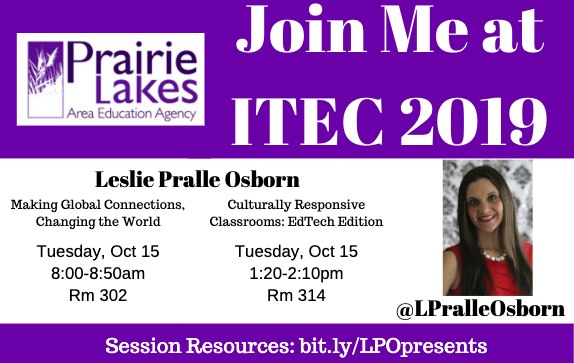This morning I was listening to the voxes in the Minnesota Educator Voxer group (yes, I know I’m from Iowa) and Jenny Wamsley (@JennyWamsley) issued a challenge – share a 15 second video about why you teach.
Being the safe driver that I am, making a video was not an option at that point, so I participated with an audio response.
Here was my response.
I feel incredibly blessed to be able to have even a small part in shaping the world in that way.
Here’s another from Dane Barner (@mrbarnerwcms)
So now it’s your turn, why do you teach? You have 15 seconds!
Being the safe driver that I am, making a video was not an option at that point, so I participated with an audio response.
Here was my response.
I feel incredibly blessed to be able to have even a small part in shaping the world in that way.
Here’s another from Dane Barner (@mrbarnerwcms)
So now it’s your turn, why do you teach? You have 15 seconds!


 RSS Feed
RSS Feed
